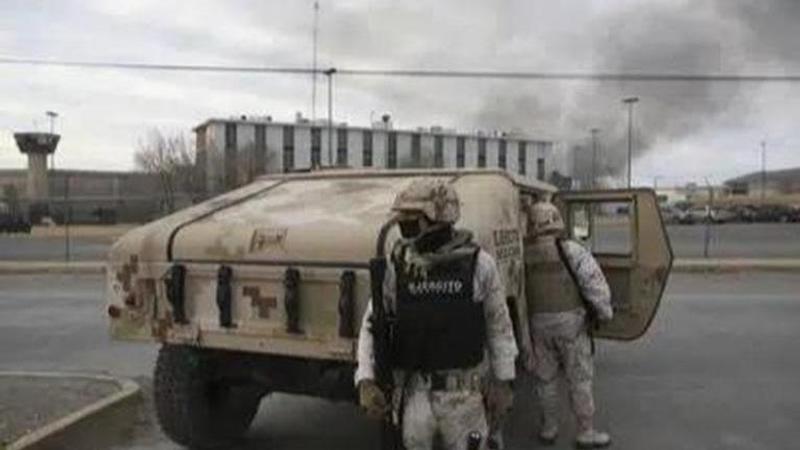Published 15:34 IST, January 6th 2023
Arrest of El Chapo's son triggers wave of violence in Mexico; schools, airport shut down
On Thursday, Mexican authorities captured Ovidio Guzman Lopez, son of the infamous drug lord Joaquin "El Chapo" Guzman Loera, founder of the Sinaloa cartel.

Mexican authorities on Thursday captured Ovidio Guzman Lopez, son of the infamous drug lord Joaquin 'El Chapo' Guzman Lorea. The operation happened early in the morning in the northwestern city in Culiacan, for years the base of the Sinaloa cartel.
The arrest was a major public relations win for President Andres Manuel Lopez Obrador, who is set to host United States President Joe Biden and Canadian Prime Minister Justin Trudeau at the North American Leaders Summit in Mexico City on January 10.
Experts, however, are skeptical if the capture of Guzman Lopez, known to be El Chapo's least accomplished son, would have any meaningful impact on cartel activities, according to a report in the New York Times.
Cartel hits back
Following the arrest, the cartel responded with roadblocks, shootouts and violent attacks.
Videos on social media show buses and tractor-trailers in flames. Reports say shots were fired near the Culiacan airport. The airport announced on Twitter that it had to shut down operations for security reasons. Armed groups set vehicles on fire and blocked major roads, a local intelligence official told New York Times.
Loud explosions were heard in the north of the city and armed groups were reportedly stealing cars at gunpoint. Schools and government buildings had to be closed down.
Aeromexico, the Mexican airline, said at least one bullet had hit the fuselage of a commercial plane set to take off for Mexico City Thursday morning. The flight was cancelled.
Making amends
Guzman Lopez's arrest was an opportunity of the Mexican government to make amends for a similar but botched operation three years ago, when Mexican authorities briefly detained Lopez before they were forced to set him free as cartel gunmen overpowered law enforcement.
The Guzman family has had a long history of escaping capture, with El Chapo breaking out of prison twice.
Federal prosecutors in the United States say his sons helped orchestrate his escape from a maximum-security detention center in 2015 through a mile-long tunnel dug into the prison.
El Chapo was eventually extradited to the United States in 2017 and was sentenced to life in prison in 2019.
The Sinaloa cartel: A brief history
Established in the 1980s by Joaquin "ElChapo" Guzman Loera and his associates, the Sinaloa cartel is based out of the state of Sinaloa in northwest Mexico. The cartel came into being through the merger of several smaller drug trafficking groups, including the Guadalajara cartel led by Miguel Angel Felix Gallardo.
The Sinaloa cartel was quick to establish itself as a major player in Mexican drug trade. Since then, it has become one of the most powerful and influential criminal organisations in the country.
The Sinaloa cartel is infamous for its elaborate smuggling operations, often involving the use of tunnels, aircraft, and maritime vessels to transport drugs across the border into the United States. The cartel is also involved in the production and distribution of a wide variety of illegal drugs, including marijuana, cocaine, and methamphetamine.
Despite being targeted by the Mexican government and law enforcement agencies in both Mexico and the United States, the Sinaloa cartel has managed to maintain its power and influence in the illegal drug trade. It has done so through violence, corruption, and strategic alliances with other criminal organisations.
The Sinaloa cartel has a history of infiltrating the Mexican government and law enforcement agencies in order to further its own interests and protect its operations. The cartel has been accused of bribing officials and using its wealth and influence to gain favours and access to sensitive information.
There have been numerous instances of high-level officials, including politicians and law enforcement officers, being charged with or arrested for their involvement with the Sinaloa cartel. In some cases, these officials have been accused of providing the cartel with protection, intelligence, and other forms of support.
The Sinaloa cartel has also used violence and intimidation to silence those who might pose a threat to its operations. This includes journalists, activists, and other individuals who have spoken out against the cartel and its activities.
Updated 15:34 IST, January 6th 2023




